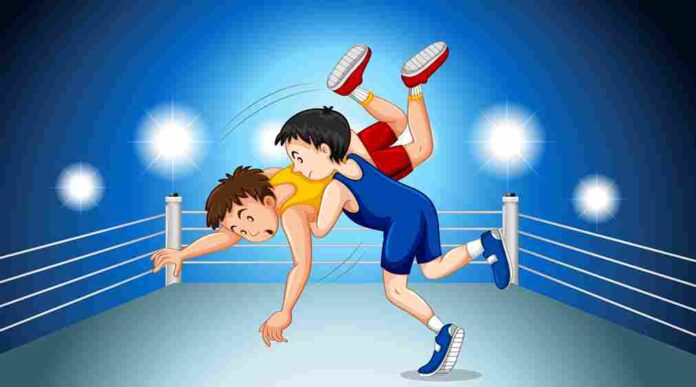Kabaddi, a dynamic and intense sport, relies heavily on teamwork and coordination. Unlike many other sports, kabaddi demands constant communication, trust, and synchronization between players. Whether in raiding or defense, the performance of individual players is directly influenced by how well the team functions as a unit. For teams looking to dominate the kabaddi mat, improving coordination is essential for success.
Understanding the Importance of Team Coordination
In kabaddi, players must anticipate the opponent’s movements, strategize collectively, and execute plays with seamless precision. Raiding requires careful collaboration to ensure that the team can defend successfully when the raider returns. Similarly, defenders must work in unison to trap raiders without leaving gaps. Poor coordination often results in errors, allowing opponents to score easily.
Key Areas to Focus on for Better Team Coordination
- Communication
Effective communication is the backbone of any successful kabaddi team. On the mat, there is limited time for lengthy discussions, so players must develop quick, clear signals and verbal cues.
- In Raiding: The raider should communicate with teammates before and after entering the opponent’s half. Signals indicating readiness, time left, or escape routes help teammates stay prepared.
- In Defense: Defenders must consistently call out opponent positions and coordinate when to launch a tackle or hold back. Communication helps prevent overlapping movements or missteps.
Drill for Communication:
- Engage in small-sided matches where players can only defend through verbal instructions. This enhances communication skills under pressure.
- Trust and Understanding Player Roles
Every kabaddi player has a specialized role, and trust among teammates is crucial. For example, corner defenders are responsible for initiating holds, while covers provide backup. Raiders must trust the defense to hold strong while they focus on scoring points.
- Ensure each player knows their responsibilities and trusts teammates to execute their roles effectively.
Role-Specific Training:
- Conduct position-specific drills where players practice their designated roles repeatedly, developing confidence and trust in their teammates.
- Synchronization in Defense
Defensive coordination is vital to stopping raiders. Synchronization ensures that defenders move as a single unit, reducing the chances of errors.
- Practice defensive formations like the chain tackle, where two or more defenders coordinate to trap the raider.
- Focus on timing; defenders should launch attacks together rather than individually.
Drill for Defensive Synchronization:
- Pair defenders and have them practice chain tackles on live raiders. Emphasize timing and simultaneous movement.
- Raider and Defender Interaction
A raider’s success often depends on how well the defenders set the pace of the game. The raider and defense must work together to wear down opponents by alternating between aggressive raids and defensive setups.
- Raiders should receive cues from defenders on when to raid aggressively and when to adopt a conservative approach.
Simulated Match Play:
- Conduct practice matches where raiders and defenders focus on coordinating strategies in real time. Adjust tactics based on the flow of the game.
- Strategic Planning and Set Plays
Kabaddi teams can benefit from developing set plays and strategies for different match situations.
- Create predefined defensive formations and raiding sequences that players can implement instinctively during a match.
- Develop contingency plans to adapt to unexpected situations, such as injuries or fouls.
Drill for Set Plays:
- Develop 3-4 raiding and defensive set plays. Practice these routines until they become second nature to the team.
Building Mental and Physical Coordination
- Fitness and Agility Training
Kabaddi demands peak physical fitness and quick reflexes. Teams that train together develop synchronized physical movements, enhancing overall coordination.
- Incorporate agility drills, strength training, and endurance exercises that require teamwork.
- Practice group exercises like synchronized sprints, tug-of-war, and relay races.
- Mental Conditioning
Mental resilience and focus are essential for team coordination. Teams that stay composed under pressure can make better decisions and execute plays effectively.
- Use visualization techniques where players imagine successful raids or defensive holds.
- Practice meditation and breathing exercises to improve focus and reduce anxiety during matches.
- Trust-Building Activities
Trust and bonding off the mat translate to better coordination during matches. Team-building exercises help develop mutual respect and understanding.
- Engage in team outings, trust falls, or problem-solving activities to strengthen interpersonal relationships.
Regular Analysis and Feedback
- Match Analysis
Record practice matches and competitive games for review. Analyzing gameplay allows teams to identify areas for improvement and refine strategies.
- Focus on moments where coordination broke down and develop strategies to prevent similar issues in future matches.
- Feedback Sessions
Conduct regular feedback sessions where players can discuss their experiences, highlight challenges, and offer solutions.
- Encourage open communication and create a supportive environment for constructive criticism.
The Role of the Coach in Enhancing Coordination
The coach plays a pivotal role in fostering team coordination. A coach must:
- Develop tailored training programs focused on teamwork.
- Monitor player interactions and intervene when necessary to resolve conflicts.
- Inspire confidence and motivate players to work together toward a common goal.
Conclusion
Improving team coordination in kabaddi is a continuous process that requires dedication, communication, and trust. By focusing on synchronized movements, strategic planning, and strong interpersonal relationships, kabaddi teams can enhance their performance and dominate their opponents. A well-coordinated kabaddi team operates like a machine – each part functioning seamlessly, contributing to collective success. With consistent practice and teamwork, any kabaddi squad can rise to the top of their league.



